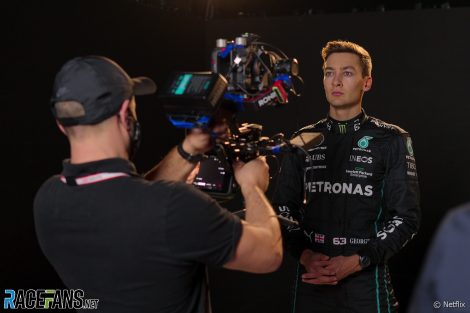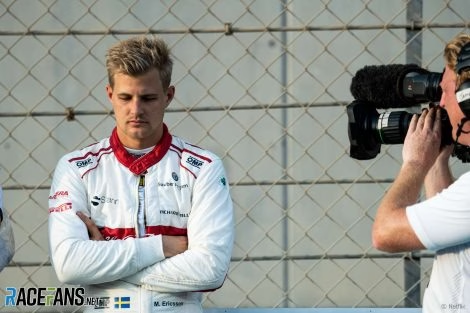Formula 1 feared Ferrari and Mercedes’ refusal to participate in the original series of Drive to Survive would doom the project to failure.
The Netflix series has been a major hit for F1 and is credited with bringing a new audience to the sport.
All 10 teams allow the series’ producers, Box to Box, access to their garages during some race weekends for filming. However when filming first took place in 2018, Ferrari and Mercedes refused to grant them permission. As a result, the series’ storylines tended to focus on other teams.
F1’s director of media rights Ian Holmes admitted they were fearful at the time the absence of the two championship-contending teams would compromise the series.
“We were in discussions with another worldwide streamer who were interested in a series that focussed on one team, so we pivoted away from one streamer and ended up with another streamer, Netflix,” he said in an interview published by Pirelli. “But we had no idea it was going to be quite as successful as it was.
“In series one, Mercedes and Ferrari didn’t participate and we thought that might be the sort of death knell for the series. Ironically, it was probably one of the things that helped it.”
“It helped demonstrate the nature of the series and the narrative,” Holmes explained. “That it’s not about who won a race or who won the championship and who came second.
Advert | Become a RaceFans supporter and
“What it demonstrated was that people were interested in stories about people, stories about organisations, behind the scenes. And as we have since seen in multiple series, since some of the biggest characters that have come out in the series, they’re not at Ferrari and Mercedes. I mean, everyone wants to know about their drivers and things, but this is about human interest.”

Max Verstappen temporarily refused to take part in Drive to Survive after criticising the programme makers for creating false narratives. He resumed co-operating for its fifth season.
Drive to Survive’s producers Box to Box are currently filming the seventh season of the series, which will be broadcast next year. Holmes said their ability to humanise the sport has made it a success.
“Our sport is a complex sport, it’s a technical sport that’s superbly covered, I would say, by Formula 1’s own on-site production covering the racing on…
Click Here to Read the Full Original Article at RaceFans…

